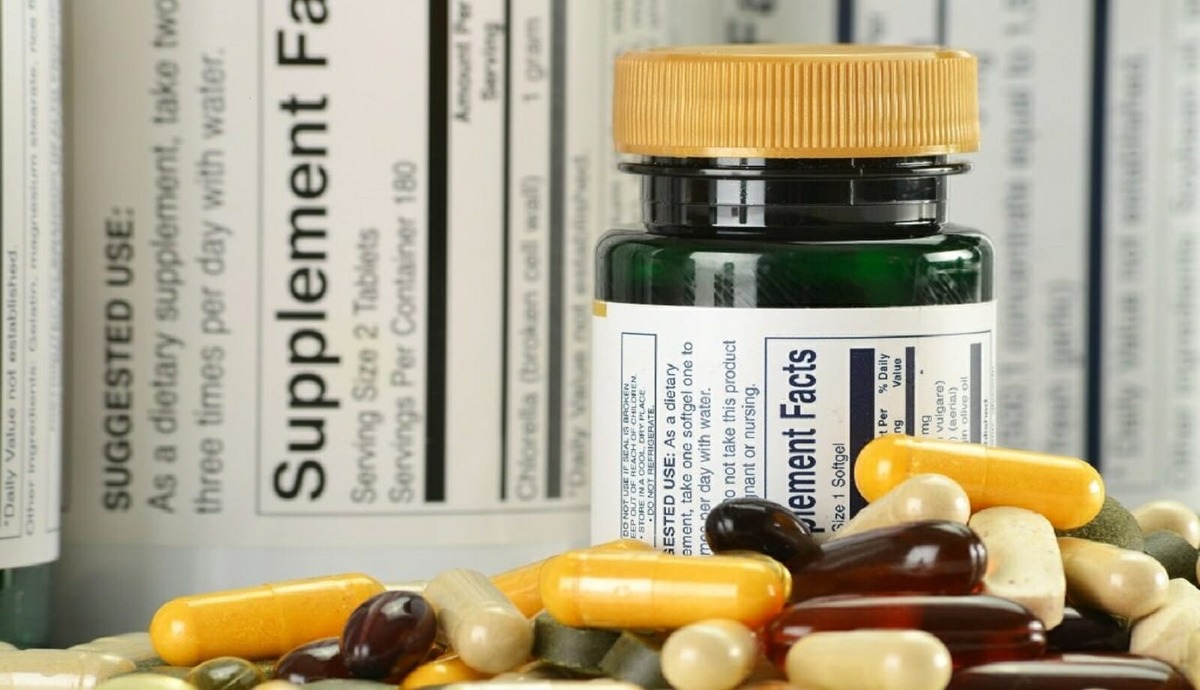Essential Labelling Regulations for Nutraceuticals and Health Supplements to Ensure Consumer Safety – 5 Key Points
March 15, 2023

The growing awareness of the importance of good health, wellness and maintaining a healthy lifestyle amongst Indian consumers, have contributed to an increased interest in nutraceuticals food supplements. Additionally, rising per capita disposable incomes have enabled consumers to spend more on nutraceuticals and health supplements that augment good health. Hence, the demand for nutraceuticals and health supplements is increasing steadily, prompting local manufacturers to increase production volumes.
Nutraceuticals and Health supplements are made through a complex process and typically consist of a variety of substances such as nutrients, bioactive compounds, herbs, extracts, etc. in precise quantities and proportions. Since, the effects of these products vary from person to person, manufacturers must comply with various standards and regulations to ensure their effectiveness legitimacy, and above all, consumer safety. Nutraceuticals and food supplements that are unsafe are entirely unsuitable for consumption.
Regulations Around Nutraceuticals And Food Supplements
In India, Food Safety and Standards (Health Supplements, Nutraceuticals, Food for Special Dietary Use, Food for Special Medical Purpose, Functional Food and Novel Food) Regulations, 2022 oversee the regulatory compliance of nutraceuticals, food and health supplements. Recently, the government has tightened regulations to address the growing concerns of inferior and counterfeit products in the market. Numerous regulations and measures are implemented by the authorities to prevent substandard products from entering the market.
An advisory was released by FSSAI on March 7, 2023, regarding the implementation of special enforcement drives aimed at verifying the compliance of Nutraceuticals and Health supplements. The reason for this action is due to the sale of non-compliant Nutraceutical and Health supplement products in the market, as well as the false and misleading label/health claims associated with these products. As a result, the Food Authority will increase its monitoring of the manufacturing and sale of these products, conducting enforcement drives to verify their compliance with FSSAI regulations and imposing strict penalties on any FBOs found to be non-compliant.
It is, hence, imperative for both – consumers and nutraceutical and health supplement companies - to understand what are the major labelling regulations and declarations for nutraceutical and health supplement, to ensure consumer safety.
Following are the product categories that fall under the scope of the Nutraceutical and Health Supplement Regulations –
Nutraceuticals
Health Supplements
Food For Special Dietary Use
Food For Special Medical Purpose
Food With Added Prebiotic Ingredients
Food With Added Probiotic Ingredients
Functional Foods
Novel Foods
Nutritional Ingredients
Pre-Mixes
Specialty Food Containing Plant Or Botanical Ingredients
Businesses may prepare and sell the above in format of granules, powder, tablet, capsule, liquid, jelly or gel, semi-solids and other formats and may be packed in sachet, ampoule, bottle, and in any other format as measured unit quantities only as applicable to and approved for the respective product category.
Definitions:

What do you mean by the term “Nutraceuticals”?
Nutraceutical is a category of foods which consists of extracts, isolates and purified chemical compounds having a physiological benefit and help to maintain health
What do you mean by the term “Health Supplement”?
Health supplement is a category of foods, which consists of a concentrated source of nutrients (like proteins, minerals, vitamins, amino acids) and/or other ingredients with nutritional or physiological effects, singly or in combination, whose purpose is to supplement the normal diet.
5 Key Points To Ensure On Food Labels:
Labelling Provisions under FSSAI for Nutraceuticals and Health/ Food Supplements can be largely classified under the following-
1. Product Identification:
The words “Health Supplement/ Nutraceutical/ Food For Special Dietary Use/ Food For Special Medical Purpose/ Prebiotic Food /Probiotic Food” As Applicable To The Concerned Category Is A mandatory requirement for consumers to understand the true nature of the product that is in the pack.
Along with the above, it is essential that the target consumer group and/or age group also mentioned on the pack for easy consumer reference. Product identification should be on the front of pack across all Nutraceuticals and Health/ Food Supplements.
2. Product Usage:
Product Usage covers multiple aspects of the product usage such as –
Declaring “NOT FOR MEDICINAL USE”, unless exempted for specific categories under these regulations
Recommended usage, Dosage levels, Duration of Use must also be explicitly declared either on the front or the back of pack.
It is essential to add a warning statement - ‘Not to exceed the recommended daily usage’ – on the pack labels, including advisory warning in cases where excess consumption could be dangerous.
The label, accompanying leaflet or other labelling and advertisement of each type of article of food, referred to in these regulations shall provide sufficient information on the nature and purpose of the article of food and detailed instructions and precautions for its use, and the format of information given shall be appropriate for the intended use of the consumer.
3. Warning Statements:
Warning on any other precautions to be taken while consuming, known side effects if any, contraindications and published product or drug interactions, as applicable, need to be declared on the label.
In case the product is not suitable for children, a warning to keep the product out of reach from children, should be mentioned on the label.
For FSDUs (Food for Dietary Use) and FSMPs (Food for Special Medical Purpose), a statement or warning conveying that the product is not to be used as a substitute for a varied diet, will be essential.
4. Nutrition Information, Quantity of Active compound and Health Benefits
Declaration on the amount of the nutrients or bioactive substance in the nutraceutical or health supplement, along with their nutritional or physiological effect present, must be present on the label.
The quantity of nutrients, expressed in metric units per serve, within the tolerance limit established by the regulations, and percentage of the relevant recommended daily allowances.
In case of Health supplements, Nutraceuticals and Foods for Special Dietary Uses (FSDU) in tablet and capsule format, there are certain exemptions to declaration of macronutrient information (i.e. carbohydrates, proteins, fats) when sources of energy are insignificant.
The label, presentation and advertisement of the product should not claim that the health supplement has the property of preventing, treating or curing a human disease. The heath claims made on the label should be commensurate to the quantity of the nutrients or the active compound present in the nutraceutical and health supplement.
All brands must create a claim substantiation document that can support the efficacy and safety of the nutrient or the bioactive compound and the product claims on the label, with the help of available scientific literature (primary or secondary) including official traditional texts and post market data or consumer studies or cohort or retroactive studies based on eating pattern and health benefits, epidemiological international and national data, and other well documented data. Primary research studies carried out by businesses that are valid, consensual and congruent to clinical trial norms, are permitted.
5. Food Label Mandatories
The pack label should be in accordance with the Food Safety and Standards (Labelling and Display) Regulations, 2020, and the specific labelling requirements provided in these regulations such as – name of food, list of ingredients, declaration of additives, declaration of food allergens, nutrition information, declaration of veg / non veg logo, manufacturer, packer, marketers details with FSSAI license, instructions of use, amongst other mandatory food labelling requirements.
Other mandatory regulations such as Legal Metrology for Packed Commodities and Plastic Waste Management Regulations will apply to the category as well.
Food Labelling Regulations For Export Countries:
Nutraceuticals and Health Supplements that are being exported to countries outside of India should be commensurate to the labelling compliances of the respective importing countries. Nutraceuticals are regulated differently in different countries, and some countries have their own regulations for these products.
Here is a list of countries that have their own nutraceutical regulations:
United States: The U.S. Food and Drug Administration (FDA) regulates nutraceuticals as dietary supplements under the Dietary Supplement Health and Education Act (DSHEA).
Canada: Nutraceuticals are regulated under the Natural Health Products Regulations, which require these products to be licensed and meet certain safety and quality standards.
European Union: The EU has a framework of regulations for food supplements and fortified foods under the Food Supplements Directive.
Japan: Nutraceuticals are regulated under the Foods for Specified Health Uses (FOSHU) system, which requires these products to meet certain safety and efficacy standards.
Australia and New Zealand: Nutraceuticals are regulated under the Therapeutic Goods Administration (TGA), which requires these products to be listed or registered and meet certain safety and quality standards.
China: Nutraceuticals are regulated under the Health Food Registration and Filing System, which requires these products to meet certain safety and efficacy standards.
Businesses must note that regulations can change over time and there may be additional countries with their own nutraceutical regulations beyond this list.
Read more on FSSAI Nutraceutical Regulations, 2022 on – Food Safety and Standards (Health Supplements, Nutraceuticals, Food for Special Dietary Use, Food for Special Medical Purpose, Functional Food and Novel Food) Regulations, 2016
India's nutraceutical industry is poised to become a global leader, with a market value of USD 4-5 billion. According to some reports, this market could grow to USD 18 billion by 2025, driven in part by increased production of dietary supplements following the Covid-19 pandemic. However, the potential for high profits in this sector also increases the risk of malpractices such as adulteration, which not only endangers consumers' health but also threatens the integrity of the supply chain. To address this risk, the FSSAI has introduced labeling regulations that empower consumers to make informed purchasing decisions.
The objective of the labeling regulations is to prevent malpractices such as ingredient adulteration or overuse, provide clarity to consumers regarding product contents, and enforce quality standards and transparency among manufacturers.
The FSSAI labelling regulations ensure that labeling declarations on packs comply with strict standards, making it crucial for businesses to understand the legal requirements of label information. Failure to adhere to these regulations can result in severe consequences for manufacturers, making it wise to follow them to benefit both manufacturers and end-users.
About LabelBlind®
Established in 2018 and based in Mumbai, LabelBlind® specialises in the area of Digitising Food Labelling and Regulatory Compliance. FoLSol® by LabelBlind® presents India’s 1st Digital Food Labelling Solution. The SaaS platform supports Food Businesses to be Labelling Compliant and Build Consumer Trust. FoLSol® by LabelBlind® is designed to strengthen the food labelling ecosystem across a wide spectrum of services including, Packed Food Labelling, Menu Labelling, Exports Labelling, Nutraceuticals and Food Supplements Labelling and Labelling for Ecommerce players. FoLSol® Digital Food Labelling Solution is fast, accurate, and cost effective. The company is ISO9001 certified in its processes.

Sonika Sharma (MSc Food & Nutrition)
Sonika has worked with FMCGs as a market nutritionist for over 4 years. Apart from her interest in everything food and nutrition, she also enjoys reading and travelling.
